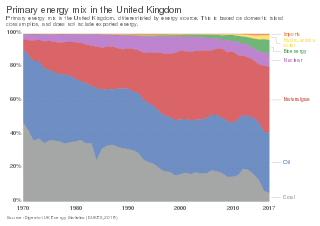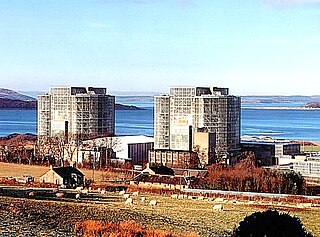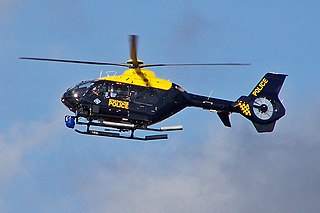
Scottish Fuels is a distributor of fuel oil products and petrol within Scotland. It was formed in 2001 following the transfer of local assets from BP. Scottish Fuels is based in Falkirk and is owned by DCC plc, an Irish company. [1]

Scottish Fuels is a distributor of fuel oil products and petrol within Scotland. It was formed in 2001 following the transfer of local assets from BP. Scottish Fuels is based in Falkirk and is owned by DCC plc, an Irish company. [1]

The 2001 United Kingdom general election was held on Thursday 7 June 2001, four years after the previous election on 1 May 1997, to elect 659 members to the House of Commons. The governing Labour Party was re-elected to serve a second term in government with another landslide victory with a 167 majority, returning 412 members of Parliament versus 418 from the 1997 general election, a net loss of six seats, though with a significantly lower turnout than before—59.4%, compared to 71.6% at the previous election. The number of votes Labour received fell by nearly three million. Tony Blair went on to become the only Labour Prime Minister to serve two consecutive full terms in office. As Labour retained almost all of their seats won in the 1997 landslide victory, the media dubbed the 2001 election "the quiet landslide".
Kerosene, or paraffin, is a combustible hydrocarbon liquid which is derived from petroleum. It is widely used as a fuel in aviation as well as households. Its name derives from Greek: κηρός (keros) meaning "wax", and was registered as a trademark by Canadian geologist and inventor Abraham Gesner in 1854 before evolving into a generic trademark. It is sometimes spelled kerosine in scientific and industrial usage.

The fuel protests in the United Kingdom were a series of campaigns held in response to the rising petrol and diesel fuel prices for road vehicle use. There have been three notable campaigns amongst many other protests in the 21st century. The first major protest in 2000 was primarily led by independent lorry owner-operators. One group of lorry owner-operators from the South East of England formed a protest group called "TransAction" that protested at oil refineries and fuel depots in Essex. Protests and blockades of oil facilities caused widespread disruption to the supply of petroleum products. The aim of the protests was to secure a reduction in the fuel duty rate on petrol and diesel, which the government refused to enact. After the protest ended, the government did announce a freeze on fuel duties, and promised changes would be made to the way that goods vehicles were taxed, which would include the taxing of foreign vehicles operating on British roads.
National Energy Action (NEA) is a fuel poverty charity that works to eradicate fuel poverty and campaigns for greater investment in energy efficiency to help those who are poor or vulnerable gain affordable heat.

Dounreay is a small settlement and the site of two large nuclear establishments on the north coast of Caithness in the Highland area of Scotland. It is on the A836 road nine miles west of Thurso.

Chapelcross nuclear power station is a former Magnox nuclear power station undergoing decommissioning. It is located in Annan in Dumfries and Galloway in southwest Scotland, and was in operation from 1959 to 2004. It was the sister plant to the Calder Hall nuclear power station plant in Cumbria, England; both were commissioned and originally operated by the United Kingdom Atomic Energy Authority. The primary purpose of both plants was to produce weapons-grade plutonium for the UK's nuclear weapons programme, but they also generated electrical power for the National Grid. Later in the reactors' lifecycle, as the UK slowed the development of the nuclear deterrent as the cold war came to a close, power production became the primary goal of reactor operation.

The British Rail Class 314 was a class of alternating current electric multiple unit (EMU) trains built by British Rail Engineering Limited's Holgate Road carriage works in 1979. They were a class of units derived from British Rail's 1971 prototype suburban EMU design which, as the BREL 1972 family, eventually encompassed 755 vehicles over five production classes.

"Fuel" is a song by American heavy metal band Metallica. It was written by James Hetfield, Lars Ulrich, and Kirk Hammett, and was released as the third single from their seventh album, Reload (1997). The song was nominated for a Grammy Award for Best Hard Rock Performance in 1999 but lost to Jimmy Page and Robert Plant for the song "Most High". It was moderately successful on the music charts, peaking at number two in Australia, number three in Hungary, number five in Finland and number six on the US Billboard Mainstream Rock chart.

Energy in the United Kingdom came mostly from fossil fuels in 2021. Total energy consumption in the United Kingdom was 142.0 million tonnes of oil equivalent in 2019. In 2014, the UK had an energy consumption per capita of 2.78 tonnes of oil equivalent compared to a world average of 1.92 tonnes of oil equivalent. Demand for electricity in 2014 was 34.42 GW on average coming from a total electricity generation of 335.0 TWh.

The energy policy of the United Kingdom refers to the United Kingdom's efforts towards reducing energy intensity, reducing energy poverty, and maintaining energy supply reliability. The United Kingdom has had success in this, though energy intensity remains high. There is an ambitious goal to reduce carbon dioxide emissions in future years, but it is unclear whether the programmes in place are sufficient to achieve this objective. Regarding energy self-sufficiency, UK policy does not address this issue, other than to concede historic energy security is currently ceasing to exist.

The lands of Daldowie in Glasgow, Scotland lie astride the River Clyde on the south and the North Calder Water to the east, and stretch to the present area of Broomhouse in the north.

Scottish Hydro plc was a public electricity supplier formed on 1 August 1989 after a change of name from North of Scotland Electricity plc on that date. It was listed on the London Stock Exchange and was once a constituent of the FTSE 100 Index but merged with Southern Electric in 1998.
The Non-Fossil Fuel Obligation (NFFO) refers to a collection of orders requiring the electricity distribution network operators in England and Wales to purchase electricity from the nuclear power and renewable energy sectors. Similar mechanisms operated in Scotland and Northern Ireland.
The Fossil Fuel Levy (FFL) is a levy paid by suppliers of electricity from non-renewable energy sources in the United Kingdom. The costs are shared by the suppliers and consumers, as a proportion of the cost is passed on to consumers in the cost of the electricity supplied. The Fossil Fuel Levy was imposed to fund the Non-Fossil Fuel Obligation.

The production of renewable energy in Scotland is a topic that came to the fore in technical, economic, and political terms during the opening years of the 21st century. The natural resource base for renewable energy is high by European, and even global standards, with the most important potential sources being wind, wave, and tide. Renewables generate almost all of Scotland's electricity, mostly from the country's wind power.

Hunterston A nuclear power station is a former Magnox nuclear power station located at Hunterston in Ayrshire, Scotland, adjacent to Hunterston B. The ongoing decommissioning process is being managed by Nuclear Decommissioning Authority (NDA) subsidiary Magnox Ltd.
The 1909 Scottish Cup final was the final of the 36th season of the Scottish Cup. The match was an Old Firm affair contested by Rangers and Celtic at Hampden Park, with the trophy being withheld by the Scottish Football Association following crowd disorder.

The first Blair ministry lasted from May 1997 to June 2001. After eighteen years in opposition, Labour ousted the Conservatives at the May 1997 election with a 179-seat majority. The Prime Minister, Tony Blair, who turned 44 years old days after leading Labour to victory, was the youngest Prime Minister of the twentieth century.

On 29 November 2013, a police helicopter operated by Bond Air Services for Police Scotland crashed into The Clutha, a pub in central Glasgow, killing all three crew on board and seven patrons of the pub. Thirty-one more people in the pub were injured.

Skyrora Ltd is a private space company based in the United Kingdom since 2017.